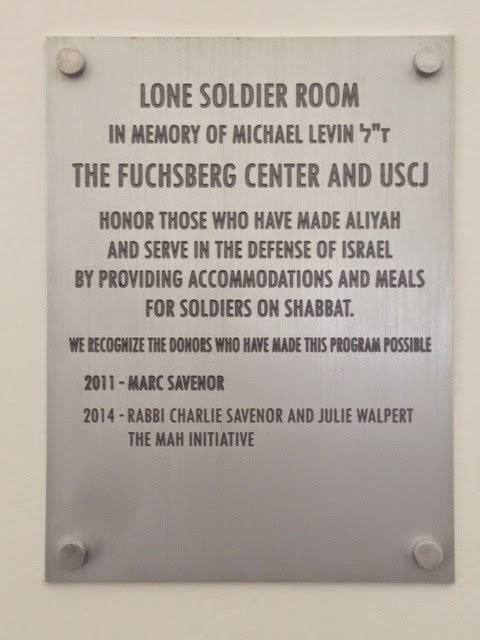“Crossing Over and Jumping In” - Parashat Lech Lecha 2014
Rabbi Charlie Savenor
One of the bumps in Abraham and Sarah’s journey to the Land
of Israel is the war between the kings, during which Lot, their nephew, is
captured. Upon hearing the news, Abraham immediately springs into action to
save him.
In the context of this biblical battle Abraham is referred
to as "Ha-Ivri", which we understand as “The Hebrew”. Since this is a regional conflict, it makes
sense that Abraham’s allegiances be identified. However, this moniker is complicated because “Ha-Ivri”
literally means “one who crosses over”. Our traditional commentators believe that
he got this name because he crossed over the Euphrates River to reach the Land
of Israel.
According to the Midrash, this name is not about Abraham’s origins,
but rather his place in the world. The rabbis teach that the whole world stands on one side,
and Abraham and Sarah on the other. This is true not just in their acceptance
of only one God, but also their commitment to justice, peace and action.
I believe that
Abraham’s dramatic response to the news of Lot’s predicament teaches us another
aspect of what it means to be an "Ivri". Embedded in our
spiritual DNA is the inclination to cross over from passive spectators to
history to proactive shapers of the future. To be an "Ivri" connotes
the willingness to jump in when we can make a difference.
Another biblical figure who identifies himself as an Ivri is
Jonah. This puzzling prophet receives his calling, and, instead of leaving for
Nineveh, flees to the Jaffa seaport and catches the first boat out of town.
Only hours after setting sail away from Nineveh, God creates
a storm to stop the boat. This storm is so horrible that every passenger on the
boat prays to their God for help, except Jonah. In order to attribute responsibility for the
storm, they draw lots. No surprise to us, Jonah draws the short straw.
After explaining that he is running away from God, he
assures them that he knows how to quiet the sea. He tells them: “Pick me up and throw me
overboard.” One can read this directive as Jonah’s desire not just to escape
from his responsibility of going to Nineveh, but also his yearning to leave
this world entirely.
While suicide appears to be one plausible explanation for
his desire to be thrown overboard, I believe that there is a clue that Jonah's
actions communicate other intentions.
.JPG) With the ship in danger, the crew and other passengers turn
to Jonah and ask him, “What do you do? Who are your people?” “Ivri Anochi,” Jonah replies, “I am a
Hebrew.” I am a Jew.
With the ship in danger, the crew and other passengers turn
to Jonah and ask him, “What do you do? Who are your people?” “Ivri Anochi,” Jonah replies, “I am a
Hebrew.” I am a Jew.
Witnessing first-hand a boat being battered by the sea and
countless lives at stake, Jonah's description of himself sets off a flare gun
in his heart, mind and soul. At that very moment, Jonah realizes he can save
these people.
Through this lens, we might understand his words as not
"Throw me overboard", but rather "Help me jump in". Jonah knew what needed to be done to save a
ship full of people, so he embraced the opportunity to make a difference.
With many challenges facing the world today, Abraham and
Jonah remind us that we have a responsibility to act because "Ivri
Anochi", we are Jews. The world needs our help, so now is the time to jump
in.


.JPG)

